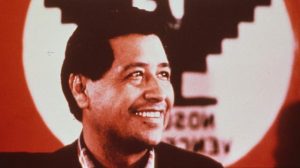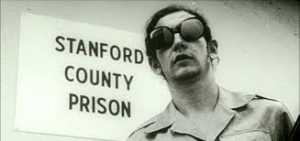“In Rochester, N.Y., women covered the gravestone of Susan B. Anthony with “I voted” stickers. Many wore white in honor of Anthony, who fought for women’s suffrage, an effort that culminated with the ratification of the 19th Amendment to the U.S. Constitution in 1920. Women have been on the national ballot before, but never as the presidential nominee for one of the two major parties.” 1
Susan B. Anthony was born on February 15, 1820 to Daniel and Lucy Read Anthony.2 She was one of seven children. Originally from Adams, Massachusetts, her family moved to Battenville, New York where her parents encouraged all of their children to value self-reliance and principled convictions. She and her family were members of the Quaker religion, which allowed the family to live modestly and practiced non-violence and respect for all people, regardless of race or background.3 Growing up, her sisters and mother would stay at home and do domestic work, while her dad ran a mill. Once her father had enough savings from managing the mill, he sent Susan and one of her sisters to be educated at a boarding school in Pennsylvania, run by the Friends of the Quakers. She graduated at the age of fifteen, and got a job for a modest salary as a teacher. Once she found out that she was making 20% less than men at the school, she went to the school’s administrators and protested that they should be receiving equal pay. Her protests led to her dismissal from the school, and she returned home.4

Susan and her family were both heavily involved in the abolition, temperance, and women’s rights movements. Her parents attended the Women’s Rights Convention at Seneca Falls in 1848 and signed the Declaration of Women’s Rights.5 One significant event that paved the way for her passion for women’s rights occurred in 1852, while she attended a meeting. As she rose to speak on a certain topic, she was ignored by all of the men in the room; angered and insulted she stormed out and soon founded the Women’s State Temperance Society. This was the incident that convinced her to fight for the right for women to vote. She felt as if it was the cornerstone of women’s fight for respect and equality.6 She attended her first Women’s Rights convention in 1852 and from then until the end of the American Civil War, she campaigned from door to door, in legislatures, and in meetings for the abolition of slavery and the promotion of women’s rights. Her persistency and hard work led to married women in New York to own their own property, keep their own wages, and have custody of their children in case of a separation or divorce. She was paving the way for the future as we know it.
In 1889, the National Woman’s Suffrage Association merged with the American Woman Suffrage Association to form the National American Woman Suffrage Association. In 1890, Wyoming became the first state to allow women the right to vote. Susan is the reason today why women can vote and without all of her hard work, women may not have that right. She did not live to see the Nineteenth Amendment but she made a great deal of influence on legislation. Before she died on March 13, 1906, she was able to see all of her hard work in action by four states giving women the right to vote. In her last public speech she gave, she ended with, “Failure is impossible.”7
- Joel Achenbach, “Women cover Susan B. Anthony’s grave with ‘I voted’ stickers as ‘Pantsuit Nation’ goes to the polls,” The Washington Post, November 8, 2016. ↵
- Reconstruction Era Reference Library, 2005, s.v. “Anthony, Susan B.” ↵
- Reconstruction Era Reference Library, 2005, s.v. “Anthony, Susan B.” ↵
- Reconstruction Era Reference Library, 2005, s.v. “Anthony, Susan B.” ↵
- Reconstruction Era Reference Library, 2005, s.v. “Anthony, Susan B.” ↵
- UXL Encyclopedia of U.S. History, 2009, s.v. “Anthony, Susan B.,” by Benson Sonia, et al. ↵
- UXL Encyclopedia of U.S. History, 2009, s.v. “Anthony, Susan B.,” by Benson Sonia, et al. ↵



65 comments
Montserrat Moreno Ramirez
It’s an incredible journey what she went through and what she was able to accomplish. It’s because of women like Susan that we are now respected and taken into consideration in matters of decisions. I think we should all be grateful for the sacrifices and actions she did, because thanks to her we are able to live in a more equalitarian way.
(posted without being logged in)
Timothy ODekirk
Wow, what a truly inspirational story. That is the fist thing that pops up in my mind after reading this article. I have always heard of Susan B. Anthony and of her famous role of being the leader of the “Womens’ Suffrage Movement”, but I was unaware of how it began. I find this story of Susan B. Anthony truly inspirational, due to the fact that no one listen to her when she was talking and how everyone paid and treated men differently than women. Even though I am a man, I cannot begin to imagine the fact of sitting in that room full of people and being ignored just because of my gender. That is what makes this story truly inspirational to me.
Christopher Sanchez
I remember in history class we were covering the Women’s Suffrage Movement that allowed women to vote as everyone else. Susan B. Anthony is an example of person that believes in change and equality. She was persistent and hardworking, it’s amazing how she used the Declaration of Independence as evidence for women to be treated equal. Through all this events going on her family supported her all the way and in doing so women finally have the right to vote.
Destiny Flores
It’s crazy how something as simple as one’s childhood can go on to shape their mindset for the rest of their lives. Because Anthony’s family was so involved politically, she went on to fight for women’s rights and actually made a difference. If she hadn’t had that childhood, or that mind set, where would women be today? As it is, we are still fighting for so much, would we still be fighting for the right to vote had it not been for her?
Marlene Lozano
It is incredible what Susan B. Anthony did. She worked hard to fight for women’s rights even after she was ignored by all the men in the room at the meeting in 1852. Without Susan’s help, women would not have the right to vote today. She is truly inspiring for all of her actions and risk she took. This article is truly inspiring.
Cristina Cabello
This is a very important historical moment. I really like how Susan worked so hard for her rights. But not only was it for hers but for all the women in the world. If it was not for her and other amazing women, things would have never changed. They strived for equality. They wanted to make sure that every person gets what they deserve.
Anna Guaderrama
I loved this article! I feel like it completely gave Susan B Anthony the justice she deserved for the legacy she left behind. If it were not for her, women would still not be able to vote and that’s a very important part of life! Without voting, we’d be stuck with someone making all the decision for us and no input of how or what WE THE PEOPLE want. Susan B Anthony serves as a role model an inspiration to anyone, especially women that anything can be done, at the time no one would have ever even dreamed of the thought of a female having the right to vote.
Tyler Thompson
This is an important historical marker, and a big milestone for women suffrage. Being that her parent’s were big on abolition probably encouraged her to make a difference in the United States. Voting is a big part of our society being that we are part of a Democracy, and women make up a lot of our population, so it was indeed very important.
Kimberly Simmons
Susan B. Anthony was a key component of women’s suffrage, her legacy growing stronger every day. She knew that women deserved the same privileges that men had and fought for them at each and every opportunity. Her being ignored by all of the men at the meeting she attended is the push that she needed to thrive. Her supererogatory efforts went above and beyond, setting the stage for women’s rights and pushing for their right to vote.
Rafael Lopez-Rodriguez
Susan B. Anthony is a public figure that many women can see as inspiration and a symbol of equal rights. Her story is inspirational and also proves that you can accomplish anything with hard work and dedication. Today women’s vote is controversial come election time that is why this achievement is a big one in history. I like the story of Susan B. Anthony because of what she did and her fight for change and letting women know that they deserve to be respected and equally treated.